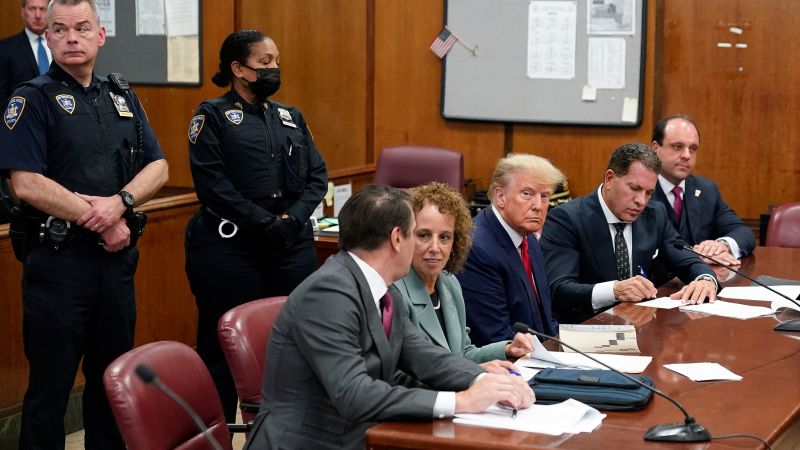Former President Donald Trump is facing his first criminal trial for his involvement in hush money payments made to women who claimed they had affairs with him before the 2016 election. Many questions have been raised about the possibility of Trump going to jail if found guilty. The charges he faces are Class E felonies in New York, with a maximum penalty of four years each. However, the judge has the discretion to decide the length of the sentences, and it is possible that Trump may not serve the full term in prison.
One of the concerns raised is whether Trump would still have his presidential Secret Service protection if he were sent to prison. According to US law, former presidents are entitled to lifetime Secret Service protection unless they decline it. The trial will not be televised, as New York state law restricts the broadcasting of proceedings. Trump will be required to be present in court every day, although there are exceptions where he may request to be excused.
The case may heavily rely on the testimony of Stormy Daniels, who could provide crucial evidence of Trump’s intent in concealing the affairs through hush money payments. The payments violated campaign finance laws, leading to criminal charges against Trump. The prosecutor is expected to connect the hush money case to interference with the 2016 presidential election, as falsifying business records was done to influence campaign finance illegally.
Trump’s legal strategy involves delaying the trial proceedings to avoid a conclusion before the next presidential election. His efforts to appeal decisions and delay the start of the trial have so far been unsuccessful in the New York case. Despite appeals and attempts to stall the legal process, Trump’s trials in both state and federal courts continue to move forward. The focus remains on whether he will be found guilty and potentially face prison time for his involvement in the hush money payments and campaign finance violations.


